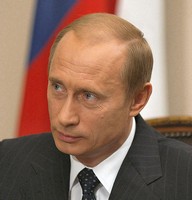This weekend’s election in Russia has unsurprisingly returned Vladimir Putin to the country’s presidency. In contrast to the preordained outcome of the Russian voting, the winner of this November’s U.S. presidential election is not yet known. But whoever occupies the White House in 2013 will need to consider the bilateral arms control relationship with Russia in coming years. And although the implementation of the New START agreement is going well, there are sharp differences in Washington and Moscow over where to go next.
Moscow’s main concerns focus on U.S. missile defense and U.S. superiority in conventional forces. Both conditions work against Russia’s willingness to cut its offensive nuclear forces even further, which is the U.S. priority, especially with regard to the issue of Russian tactical nuclear weapons.
In his recent Moscow News article on Russian foreign policy, Putin railed against what he called the U.S. quest for “absolute security.” In his words, the problem is that “absolute invulnerability for one country would in theory require absolute vulnerability for all others.” Instead, Putin again insisted on the right of all states to equal security, as well as Russia’s right to maintain the capacity to attack the United States with nuclear weapons if necessary.

